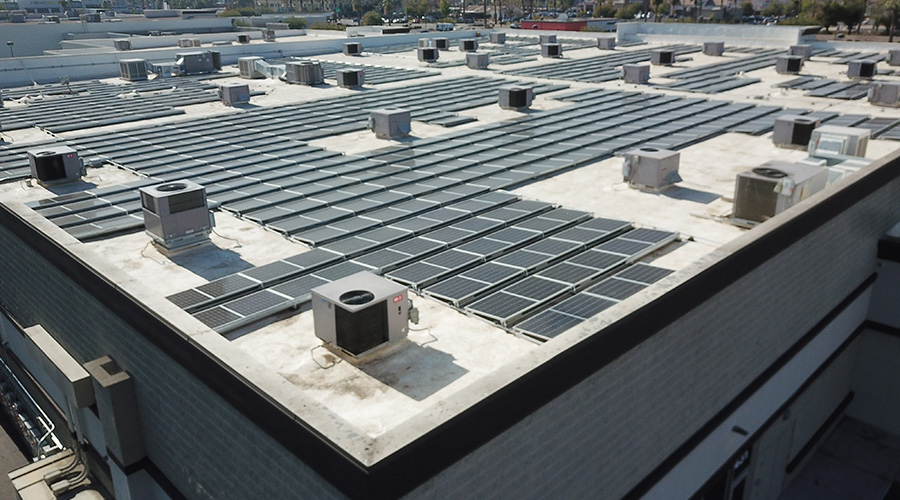Studies Show Global Companies Still Failing to Report Strategies and Potential Impacts From Climate Change
Climate change-related disclosure continues to be weak or altogether nonexistent in SEC filings of global companies with the most at stake in preparing for a low-carbon global economy, according to two new studies released by Ceres, Environmental Defense Fund (EDF) and the Center for Energy and Environmental Security (CEES).
Climate change-related disclosure continues to be weak or altogether nonexistent in SEC filings of global companies with the most at stake in preparing for a low-carbon global economy, according to two new studies released by Ceres, Environmental Defense Fund (EDF) and the Center for Energy and Environmental Security (CEES).
The reports' findings highlight the need for the Securities and Exchange Commission (SEC) to respond to repeated investor requests for formal guidance on climate-related disclosure companies should be providing in securities filings, the organizations say.
"These findings are a clarion call for quick SEC action to require better climate risk disclosure from publicly-traded companies," says Mindy Lubber, president of Ceres and director of the Investor Network on Climate Risk, comprised of 80 institutional investors with $7 trillion in collective assets. "Climate change is a bottom line issue and investors have a right to know which companies are best positioned for the emerging clean energy global economy."
"Corporate climate disclosure falls far short of what CalPERS and other investors need to carry out their fiduciary duties," says Anne Stausboll, chief executive officer of the California Public Employees' Retirement System (CalPERS), the nation's largest public pension fund and one of 18 investors that petitioned the SEC in fall 2007 to issue climate disclosure guidance. "We call on the SEC to ensure that information regarding climate change effects, including regulatory and physical impacts, are accessible and delivered to investors."
The two new studies — an in-depth look at SEC filings in 2008 as well as a multi-year longitudinal study — show companies are seriously deficient in meeting the needs of investors:
-- Climate Risk Disclosure in SEC Filings prepared by The Corporate
Library for Ceres and EDF assesses climate risk disclosure in the 10-K
and 20-F reports filed in 2008 by 100 global companies in five
sectors: electric utilities, coal, oil & gas, transportation and
insurance. The study found overall limited disclosure: 59 of the 100
companies made no mention of their greenhouse gas emissions or public
position on climate change; 28 had no discussion of climate-related
risks they face; and 52 failed to disclose actions and strategies for
addressing climate-related business challenges. Even more telling, the
very best disclosure for any of the 100 companies could only be
described as "fair," and only a handful of companies achieved this
ranking.
-- Reclaiming Transparency in a Changing Climate by CEES, Ceres and EDF
reviews over 6,000 SEC filings by S&P 500 companies from 1995 to 2008.
While the study finds some modest improvement in climate risk
disclosure since 1995, in 2008 75% of annual reports filed by S&P 500
corporations failed to even mention climate change and only 5%
articulated a strategy for managing climate-related risks.
Climate Risk Disclosure in SEC Filings finds that while some climate related disclosure was common in the electric power, coal and oil & gas industries, most filings in these sectors lacked the level of detail that investors require. Many companies in the insurance and transportation sectors failed to provide any disclosure on climate-related risks and opportunities whatsoever.
"While disclosure among companies with high exposure to climate risk is increasing incrementally, the vast majority of companies in this study have still not quantified for investors key impacts to their business. Companies in certain industries like utilities have disclosed qualitative information on regulatory risks related to climate change, but very few of the 100 companies studied disclosed the physical risks, business risks, and litigation risks they face," said Beth Young, senior research associate at The Corporate Library.
"Transparency and accountability are the hallmarks of a fair marketplace," says Fred Krupp, president of the Environmental Defense Fund. "As the nation responds to the challenges of global warming, investors have a right to know which businesses are forging innovative solutions for the Twenty-First Century and which are lagging behind. The Securities and Exchange Commission must do its part to reclaim a fair marketplace that protects the interests of all investors from Wall Street to Main Street."
Reclaiming Transparency in a Changing Climate finds a troubling pattern of silence on climate-change-related issues in filings across major sectors of the economy. "To effectively build the new energy economy, investors need to know who's planning for the future and who isn't," says Kevin Doran, co-author of the report. "Investors should not have to guess at the meaning of corporate silence." Based on review of over 6,000 10-K filings spanning more than a dozen years, the report finds: "Despite the clear imperative for prudent oversight, the SEC has failed to protect investors from enduring inadequacies in corporate disclosure concerning the material risks and opportunities posed by climate change."
Detailed Findings on Climate Risk Disclosure in SEC Filings
The study assessed climate risk disclosure for three broad categories using the Global Framework for Climate Risk Disclosure as a guide. The categories studied include 1) emissions and climate change position, 2) risk assessment, and 3) actions to address climate risks and opportunities. Findings for the five sectors studied include:
Electric Utilities: Disclosure was widespread but minimal. None of the 26 companies studied achieved a "Fair" rating on disclosure of emissions and climate change position, only 3 out of 26 companies (12%) ranked "Fair" on climate risk assessment, and only 2 out of 26 companies (8%) provided "Fair" disclosure of actions to address climate change. Nevertheless, the electric power sector ranked higher than the other sectors and had three of the highest disclosing companies in the study -- AES, Xcel, and PG&E.
Coal: All six coal companies surveyed included some disclosure of climate change issues in their 10-K filings, though only one achieved a "Fair" score in any of the three categories analyzed. Coal companies' strongest disclosure was in the area of risk assessment; five of the companies provided disclosure in this category that was rated "Limited" or "Fair." Rio Tinto provided the best disclosure, including valuable information on emissions, while Yanzhou Coal Mining Co. performed the worst overall.
Oil and Gas: The majority of the 23 companies studied provided some disclosure on climate risk assessment, but disclosure was weak with none ranking "Fair" and 22 out of 23 (96%) scored as "Limited" or "Poor." Twelve out of 23 companies (52%) provided no disclosure on actions to address climate change, while 17 out of 23 companies (74%) disclosed no information on their emissions or climate change position. Apache, Exxon Mobil and Anadarko were noted for particularly weak overall disclosure, while Shell scored best across the board.
Transportation: Only 5 of 19 (26%) disclosed their emissions or their climate change position, and none were ranked as "Fair" for this disclosure. General Motors was the only company to provide information on past emissions from its operations, while not a single company disclosed emissions associated with vehicle use. More companies provided disclosure on climate risk and actions to address climate change; however, the disclosure was weak with only 3 companies scoring "Fair" on climate risk assessment and 2 scoring "Fair" on their actions to address climate risks. Honda, Daimler and General Motors scored the highest overall.
Insurance: Although prudent risk assessment is the basis for a viable insurance industry, the 27 companies studied in this sector provided the least disclosure compared to other sectors. Eighteen (67%) had no mention of climate change or related risks anywhere in their SEC filings; 24 out of 27 companies (89%) omitted disclosure on actions to address climate change, despite the wide range of opportunities for new, climate-related insurance products. The handful of companies that did provide more informative disclosure -- Swiss Re, Munich Re and Zurich Financial -- were all non-U.S. companies.
The Corporate Library report concludes that, despite the clarity of climate science and the host of policies being enacted to combat global warming's ill effects, climate-related disclosure in SEC filings still falls short. Furthermore, climate risk disclosure in SEC filings is insufficient to meet investors' needs largely because the SEC has failed to take actions to highlight its importance. Although pressure from investors has clearly had some effect upon companies' disclosure practices, companies are unlikely to comprehensively disclose climate risks and opportunities in SEC filings in the absence of clear guidance from the SEC.
Ceres is a leading coalition of investors, environmental groups and other public interest organizations working with companies to address sustainability challenges such as global climate change. Ceres also coordinates the Investor Network on Climate Risk. For more information, visit www.ceres.org
Center for Energy & Environmental Security (CEES) works to develop practical strategies and solutions for moving international society toward a global sustainable energy future. Located at the University of Colorado Law School, CEES provides an effective and nonpartisan forum for the development of innovative ideas dealing with issues of energy and environmental security. CEES moves beyond research to create practical real-world strategies and solutions.
Environmental Defense Fund, a leading national nonprofit organization, represents more than 500,000 members. Since 1967, Environmental Defense Fund has linked science, economics, law and innovative private-sector partnerships to create breakthrough solutions to the most serious environmental problems.
Related Topics:











